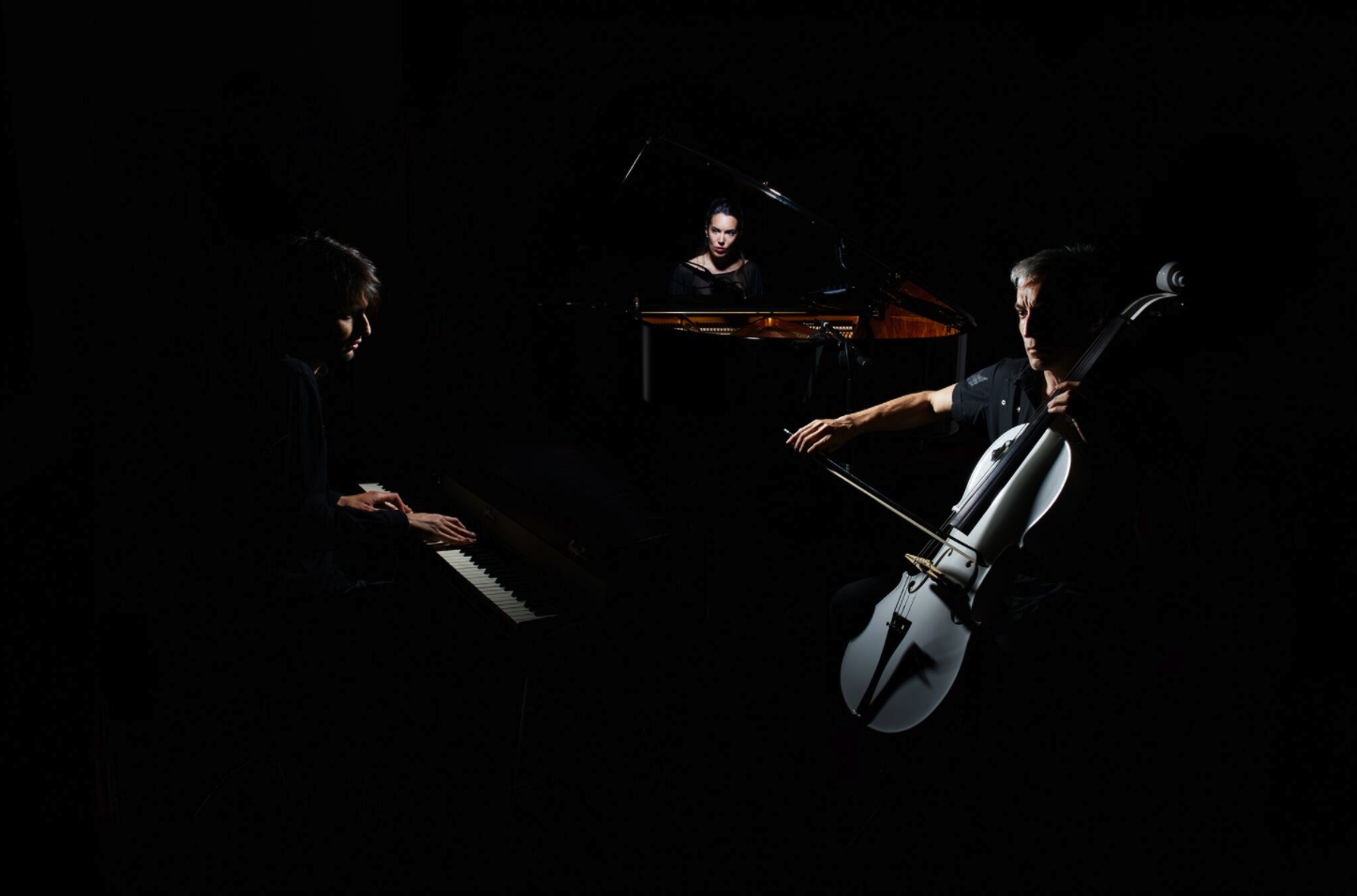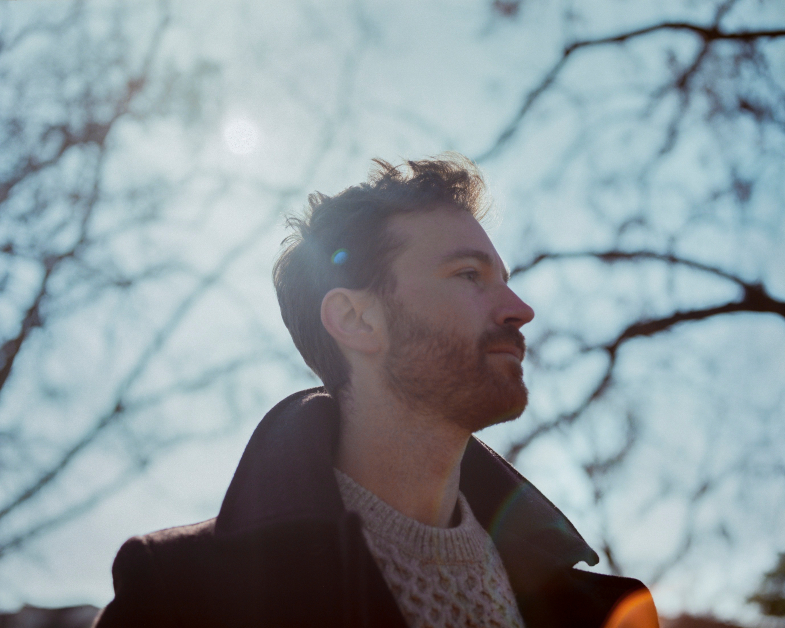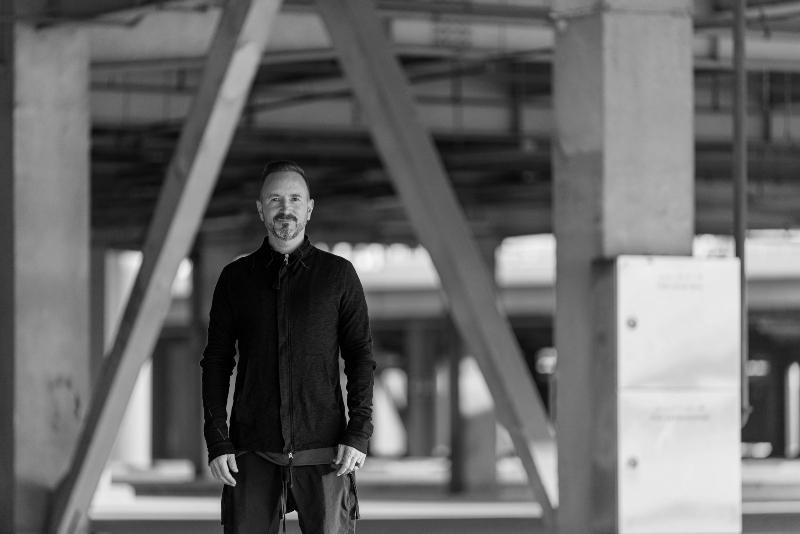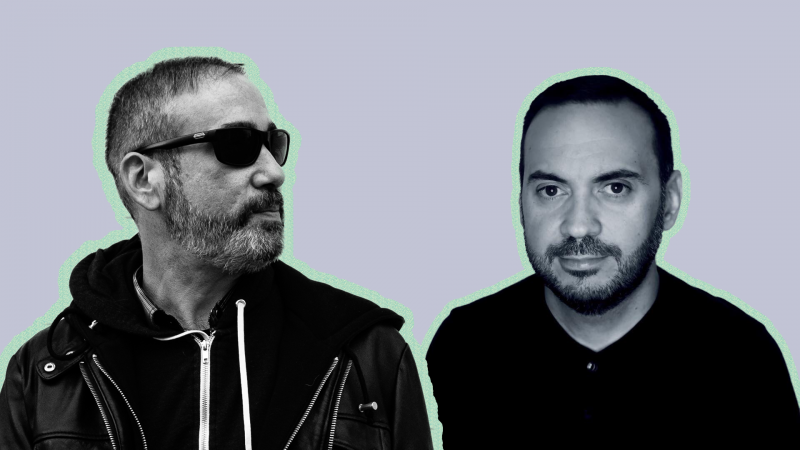Interview: 5 minutes with OPUS 3000
OPUS 3000 is an alternative, neo-classical music project comprised of pianist Gloria Campaner, cellist Alessandro Branca and producer Francesco Leali, based in Milan, Italy. Born out of the necessity to blend passion for traditional music to an alternative production method. The project does so through each member’s adroitness – from layers of delicate and classically oriented combinations to raw forms of production which hastily transport you to dystopia. A project that largely relies on classical training, heterogenic minds that come together thanks to the common denominator of experimenting and mutual curiosity which moves the group’s components. A challenge between time and silence – A cosmic exploration between sound and figure, heaving from the soft strokes of piano and cello to a belligerent technological approach.
OPUS 3000’s debut album Benevolence, released on November 24th, is an exercise in imperfection and introspection. Gloria Campaner’s piano and Alessandro Branca’s cello converge at the fingertips of Francesco Leali’s emotive yet asperous electronics. Recorded throughout 2017 in Milan, the Italian trio’s debut LP highlights rough-hewn textures and pairs delicate keys to dystopian environments. Long, single takes of acoustic instruments are woven into fine manipulated arrangements.
We spoke with Francesco Leali of OPUS 3000 on excessive manipulation and studio experiments:
Set the tone for us. Why the arts?
I never really had an answer for this question but I think it’s the fear of a 9-5 job.
Which comes first when you’re producing – the sound or the idea?
For this particular project it’s a mixture of both. I don’t give myself any boundaries initially as far as the idea is concerned, it leaves space for interesting scenarios to unfold although sometimes it might backfire and you find yourself after hours of work with something that makes absolutely no sense. That’s when you go back to the drawing board and re-evaluate the decisions you have made and try to make them work or scrap the idea and start over.
Does your material feature any collaborations?
For ‘Benevolence’ our first LP it was just Gloria, Alessandro and myself. Being our first effort together we wanted to set our own pace and find our own identity, something that wouldn’t have been possible with collaborations,.
What’s on your current playlist?
Compton White, M.E.S.H, The Bug, Godflesh, Alex Menzies, King Krule, Dedekind Cut, Object Collection, Valgeir Sigurosson, Sote, Joanne Robertson & Dean Blunt and Lee Gamble to name a few.
Tell us about the chemistry you have with your fans on stage.
We only performed once as OPUS 3000 so I can’t really give an answer for this – and that was before ‘Benevolence’ was out. It’s a completely different performing experience from what I have been used to during these 8 years performing in clubs and festivals. I still don’t see myself as much of a performer, I enjoy the recording and production process much more.
What techniques do you experiment with to get your original sound?
Excessive manipulation is a personal favourite, taking the recording of a cello or piano or any other instrument and mangling it till it’s completely unrecognizable or at least has it’s own identity. It’s something that gives you some positively unexpected results at times which then leads to opening up new doors during the writing process.
Take us through a day in the recording studio.
The day usually starts at around 8am. Shower, breakfast, walk my dog Oscar and start working on whatever it is I’m currently working on. After my lunch break which is usually around 1pm it’s back to the studio time and the session can extend itself to either late night or stop at a reasonable time. I think it depends how much I get into the idea I am working on. Sometimes I will stop my workflow to do some research, look at machine or vst tutorials, mess around with them trying to learn new approaches or maybe even change my daw template in order to be able to come up with new ideas if at that time I’m not being as productive or inventive as I’d like to be.
Was there a specific moment in your life where you thought, “this is what I want to do”?
I’ve always wanted to be involved in the music business, but I can’t recall a specific time in which I decided this was going to be my path. I graduated in Music and Arts Management thinking that if I wouldn’t make it as a producer, performer or whatever I would still be able to work in a scenario I was comfortable in. I’m happy this worked out for me, the managerial side of music can sometimes be grueling.
What do you keep close by while you’re playing a set?
Beverages
Any emerging artists on your radar?
Lanark Artefax
What gets your creative juices flowing?
Pretty much anything that visually or sonically intrigues me whether it’s an art exhibition, book, movie or song. To me, it’s important to be constantly motivated and keep things fresh – If I stick to a process for too long I’ll end up getting bored of it and nothing good will come out of it.
Take us through your collection of gear, tech or software that accompanies your creative expression.
That’s something I tend to switch around a lot. At the moment a lot of what I’m doing (especially for the OPUS stuff) is recording instruments, mostly strings, keys and field recordings and spending most of the time finding a way to incorporate those recordings in an interesting way. Whether it’s creating fx chains with pedals and vst’s to make the original sound source sound nothing like it should be to using instruments in a different way than what they were intended for.
Any side projects you’re working on?
I’ve closed down the Clockwork project that kept me busy with touring for the vast majority of my time working in music cause I felt it had arrived at a point where I couldn’t develop it as I wanted to and frankly noticed I was incredibly bored of it. This gives me time to concentrate on projects I am involved in that I actually have interest for. OPUS being one of them but also CW/A with which I work on with Avatism – Maenad Veyl and a new club oriented moniker I have been working on the side (for fun) called Until Riots that will see the light of day soon. Having said that the next six months will see me investing all my time in a score for a movie entitled ‘Never Whistle Alone’ scheduled for release in the summer of 2018.
How have you refined your craft since you entered the industry?
I think research and constant motivation play a big part in refining what you do. Continuously looking into new technologies and approaches but also being inspired by the work of people you artistically look up to. I never really had a role model but I always had people that I was empowered by cause of their output in music or even just life. Besides that, I think it’s mostly devotion to your craft, and the time you invest in it that makes a difference.
Breakdown the news for us: what can we expect from you this year?
The first Until Riots release will be out soon as well as the score to ‘Never Whistle Alone’. Also happy to mention we have started working on some new OPUS material with some artists I really look up to and cannot wait to move forward with that.
Order Benevolence by OPUS 3000 via Spotify
For more information follow OPUS 3000 on Facebook



